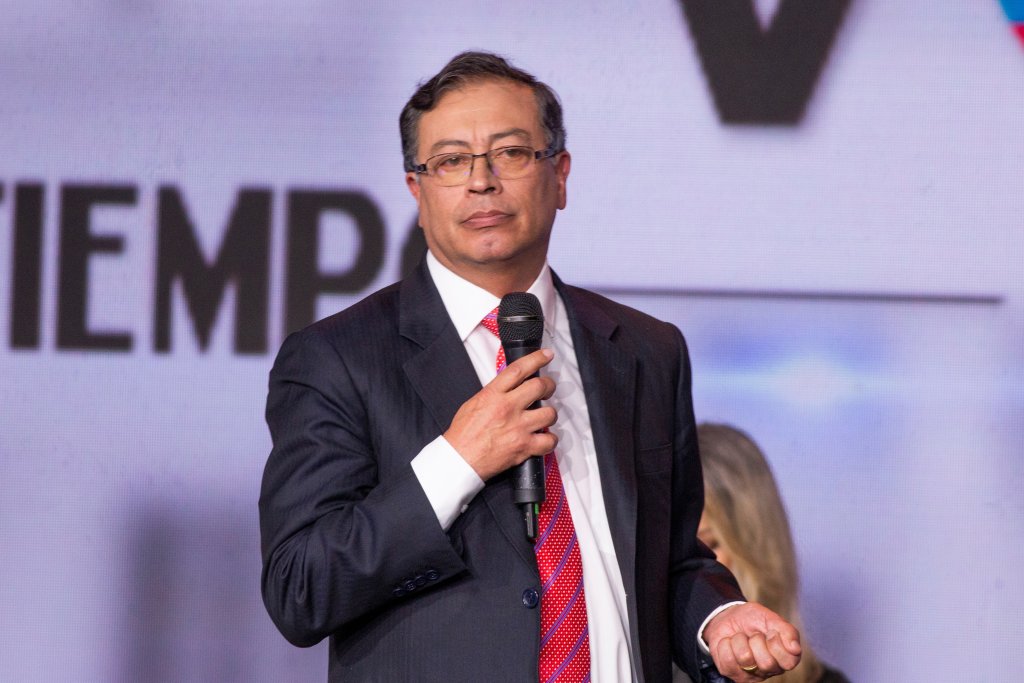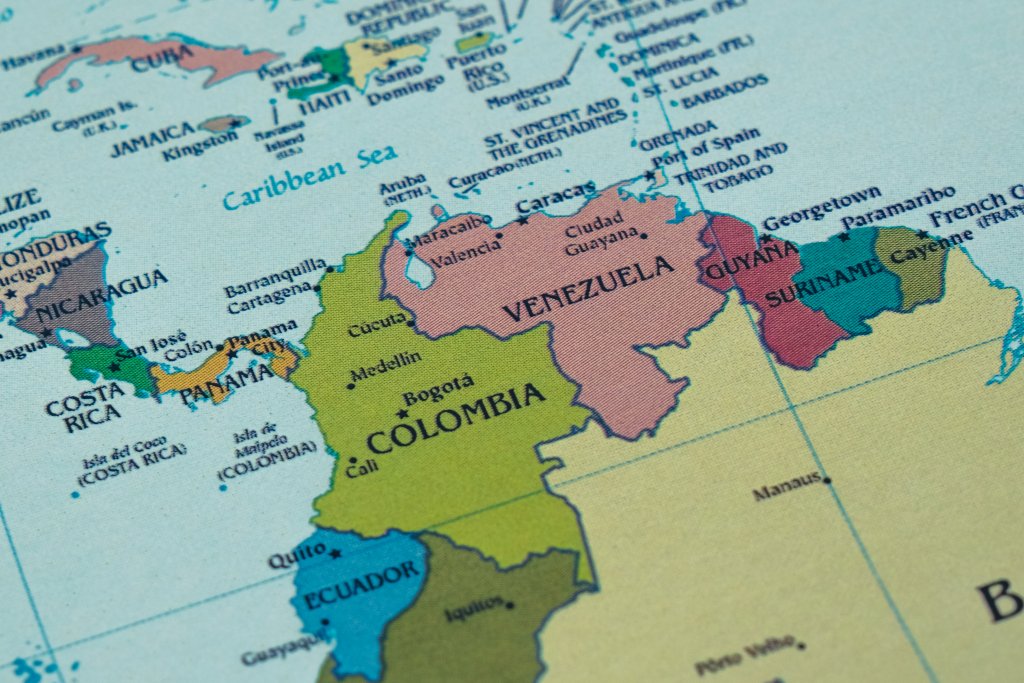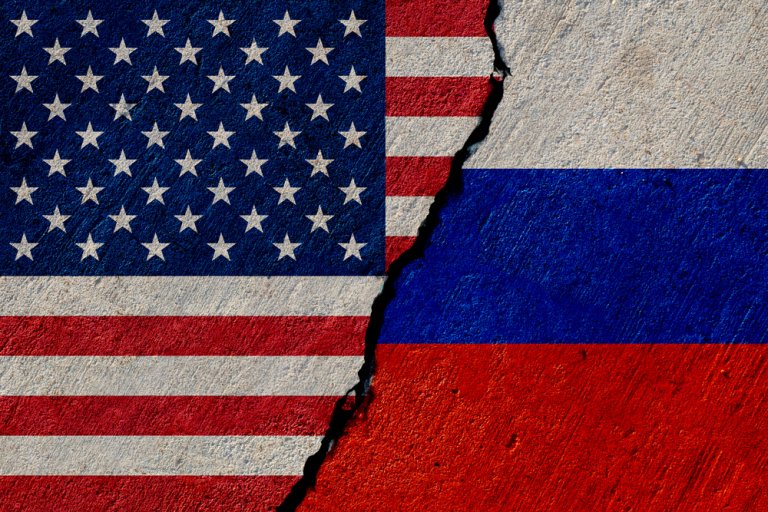
Is Gustavo Petro the new Chavez and horror for the US?
On June 20th the candidate of the united left forces of Colombia Gustavo Petro won the second round of the presidential elections with total of 50.44%. The inauguration of the four-year term presidency is scheduled for August 7th. For the first time in the history of Columbia with the victory of Gustavo Petro, leadership in the presidential Palace of Nariño in Bogota passed to a representative of the socialists, close to the country’s longstanding guerrilla movement. Petro, 62 years old, is an economist and former insurgent, senator, and previous mayor of the Columbia’s capital, who was a candidate for the third time for the presidency and lived abroad in forced exile twice. His partner and future vice president, 40-year-old Francia Marquez, is also politically left-leaning, but in a different way – she is a black feminist, eco and human rights activist.

The United States, which for years supported the enemy of the communist guerrillas – the Contras – in the civil war, is seriously concerned. At the end of the 20th and the beginning of the 21st century, the American ambassador acted as the “second president” of Colombia, and the country turned into Washington’s most reliable “bastion” in South America. Suddenly, this political blow threats a political 180-degree turn and a multiple increasing of independent decisions in the politics of Bogotá. The election program of the new president did not increase optimism to the Americans either. Tolerant for them were Petro’s promises to focus on environmental issues and climate change, reduce the country’s dependence on food imports, support local producers, increase education spending and ensure gender equality at all levels and in all branches of government. But the intentions to restore severed diplomatic relations with Venezuela and to consider the possibility of changing the terms of the free trade agreement with the United States looked very alarming.
Americans chose as the first point for an information strike on Gustavo Petro the relations and analogies with Venezuela. The associative array that had to be built in the head of the Colombians was quite simple. Petro is a left-wing dictator like Hugo Chavez, and his policy of “communist expropriation and nationalization” will lead to the same economic disaster as in the neighboring country. One cannot but agree that the poor social policy of Chavez and Maduro led to a situation where inflation in Venezuela reaches 167%, and in the “best” times it exceeded 2500%. Petro’s litigation with the energy company Ecopetrol, which at first glance resembles Hugo Chavez’s dealings with business in the 2000s could be a good example.
The board of directors of Ecopetrol, which has stated participation, was elected for a term of two to four years in March last year, long before the presidential election. Representatives of the elected president could not accept this situation, since it meant that they would not be able to make changes to the company’s board, unless the charter was changed and therefore influence its activities. Petro made a quite tough statement in which he hinted that people loyal to him should be included in the board of Ecopetrol. According to his plan, they will control the fulfillment of the promises he made to the voters. “Don’t hold us back. A national vote imposes obligations. I want to build consensus without ignoring the vote of clean energy voters,” he said.
After these words Gustavo Petro was compared with Hugo Chavez. There is a video circulating on social media for some time in which the late president of Venezuela used a similar term during a public statement against Lorenzo Mendoza, president of one of Venezuela’s most important companies “Empresas Polar”. “Don’t challenge me, Mendoza. You have a lot of money, but I am elected by the majority of Venezuelans” Chavez said.

However in reality, there is a fundamental linguistic and political difference between these statements. Chávez, unlike Petro, expressed himself not against the policies of an abstract state campaign but rather against a specific Venezuelan industrialist, whom he hated and who threatened his power. Petro does not seek personal revenge but simply wants to exercise his legal right to influence a state enterprise.
In order to discredit the new president, the proximity in rhetoric between Petro and Chávez was highlighted by Democratic Center congressman Maria Fernanda Cabal and political analyst Daniel Bricegno, who had earlier demonstrated his opposition to the Petro government’s plan. Other political activists have also criticized the president as well as his anti-Ecopetrol statements during his campaign which were far from so-called the “politics of love” and “great national consensus”. According to the opposition, the only thing he “gained” from these statements was the instability of Ecopetrol shares and the exchange rate of the national currency.
Such criticism looked superficial and indicated that Petro did not yet allow more significant miscalculations. For the first time, the left and the socialists control the power, and the president will be extremely cautious in his statements and actions, as he is playing for the long-term strengthening of his image and power. Petro will not play a “hero” and “new Bolivar”, which Chavez once loved very much. He is already starting to implement his reform plan, which he aspired to during the election campaign. They are unlikely to promise the United States the continuation of the excessive influence that they have exerted over Colombia for many decades. These reforms do not involve the flashy and ostentatious “revolution” that once took place in Venezuela but they could be much more effective.

